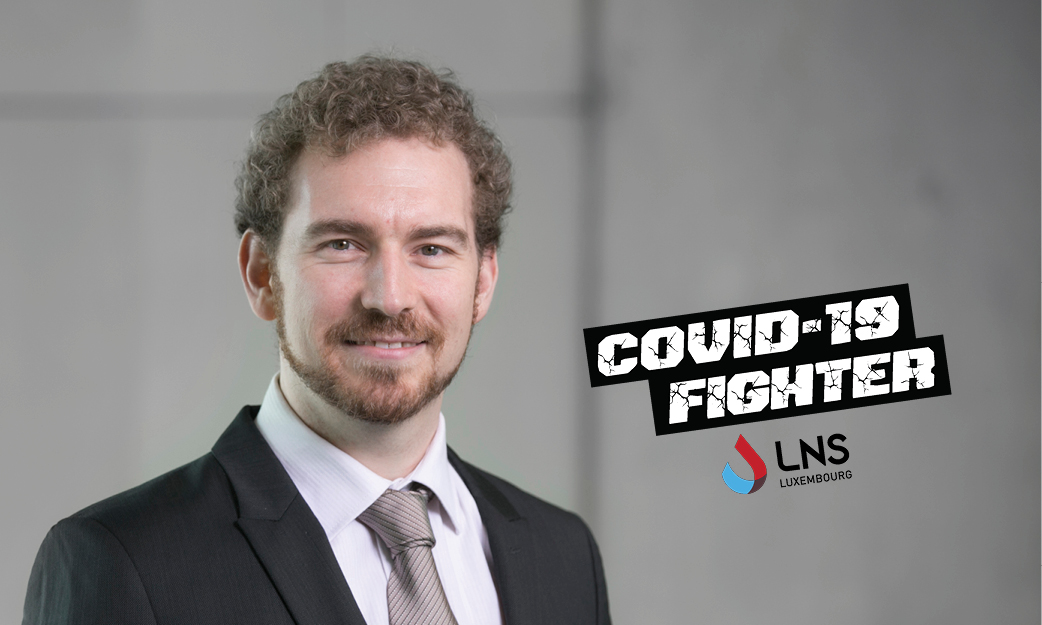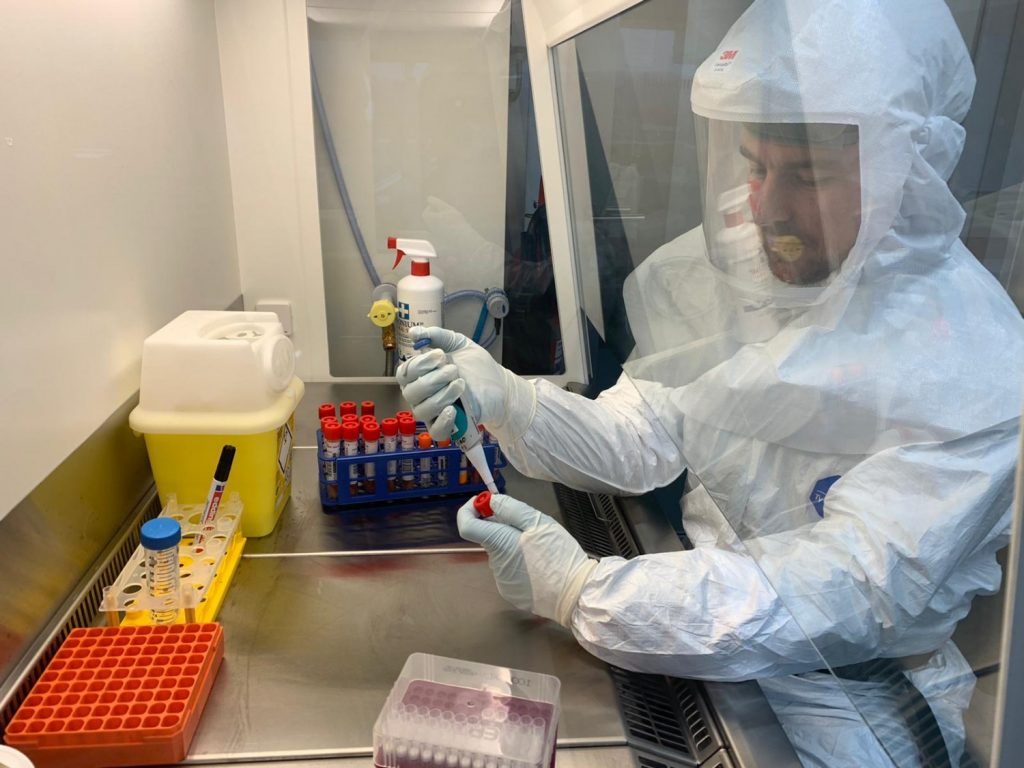- The Laboratory
- Organization
- Departments
- Jobs
- Analysis book
- Contact
- News
- Publications
- Download



I am a veterinarian by training, but also a virologist. I joined the LNS 3 years ago to strengthen the diagnostic capacity of the virology service. I am currently a scientific officer for the LNS Microbiology Department. All this of course makes me a Covid fighter as well.
I play several roles in the LNS’s fight against Covid-19. Firstly, as technical manager, I was tasked with setting up the very first diagnostic method available in Luxembourg. At the same time, as head of the level 3 safety laboratory (BSL3), I must say that at the beginning of the epidemic there was little knowledge of how to assess the risks associated with the SARS-Cov-2 virus. In order to protect the team of technicians as well as the entire LNS, we opted to unpack and inactivate the samples at BSL3.
The first step was to validate the diagnostic method that had been put in place. We cooperated with two WHO reference centres for Covid, namely the Charité Hospital in Berlin on implementing the method, and with Viroscience in Rotterdam to confirm the first results.
Although we are at the height of the epidemic and diagnosis is crucial, it is also important to set up collaborations within Luxembourg and with neighbouring countries to rapidly understand the virus and to look for ways to monitor and fight this pandemic, in order bring it under control.
The most difficult part remains the logistics surrounding the diagnosis, for instance organizing the flow of samples and the supply of reagents and equipment while all the economies of the world are idling.
The most significant moment was when the first positive cases came in. They were greeted with a certain apprehension because there was still limited understanding of what the risks were, but also a certain pride in having been able to respond quickly to this crisis situation.
After the diagnostic emergency will come research to better understand the virus and control the pandemic. Once the epidemic is under control, we will also need to review all actions taken, so as to improve procedures in anticipation of the next emerging virus!
